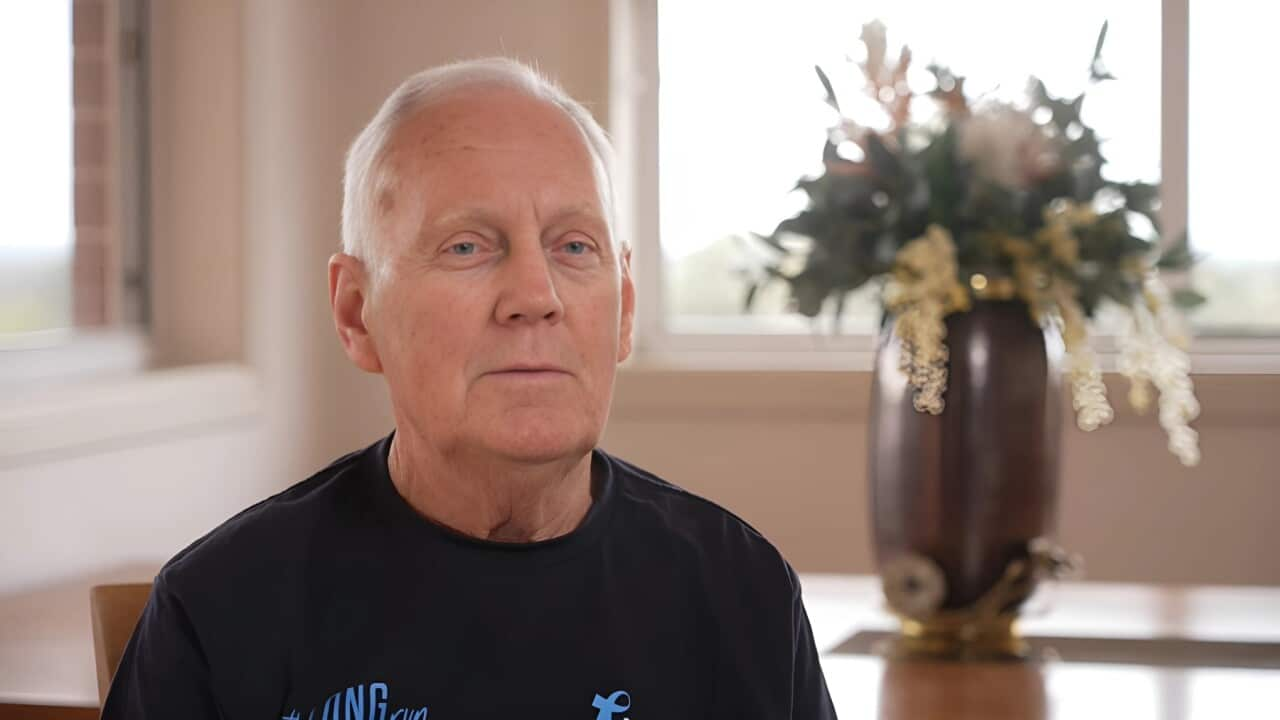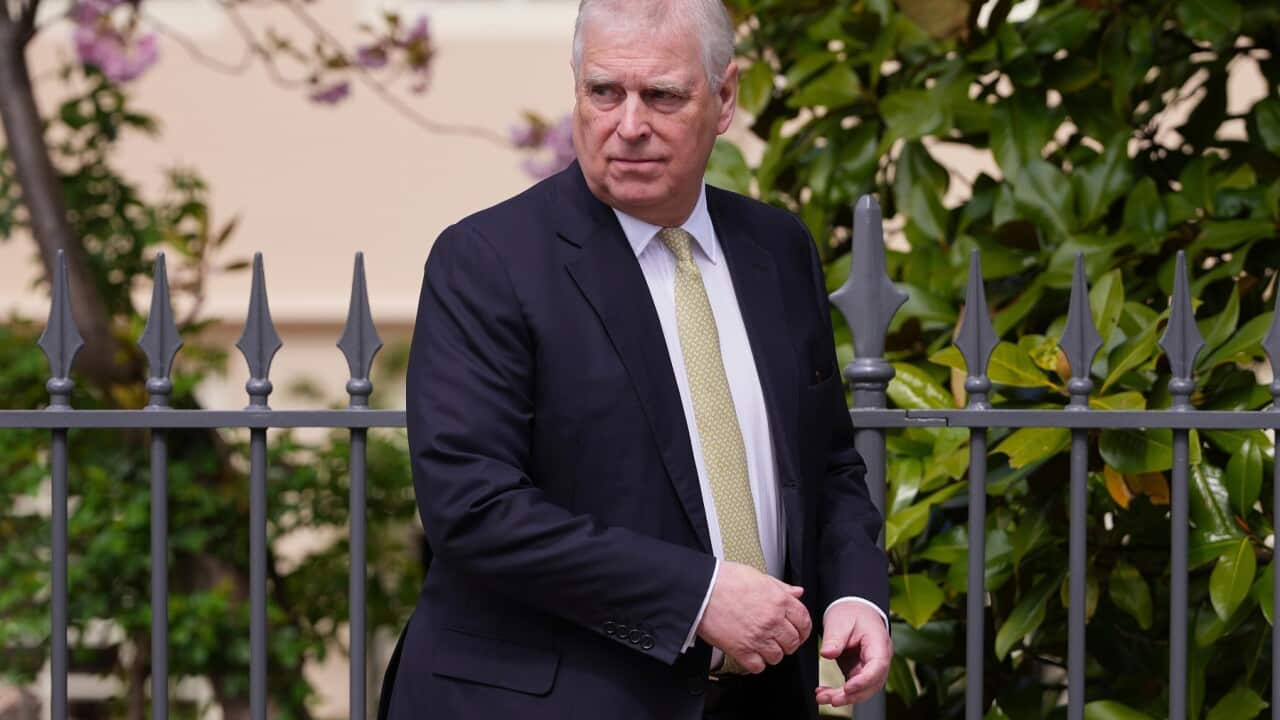Listen to Australian and world news, and follow trending topics with SBS News Podcasts.
TRANSCRIPT
It's a quiet moment at home for Geoff Blake and his wife Jill.
In 2022, Geoff was diagnosed with prostate cancer at 73 years old.
"I had blood in the urine. And that startled me so I went to the GP, and he did some tests and then sent me off to a urologist."
The cancer had become metastatic, spreading to five different bones.
"I thought I was gone. You know, once it's on the bone, you hear all these stories and you think.. oh.. how long will I last? But I never ask that question because in the back of my mind I always thought 'I can beat this'."
Fighting it would prove punishing.
Geoff's PSA levels - a marker for the cancer - continued to increase, even after his prostate was removed.
"My first experience with the chemotherapy wasn't until early last year, and it was horrendous. I got every side effect you could possibly imagine, and I couldn't eat. I couldn't do... I lost 15 kilos, and you think you're going to die."
When chemotherapy became ineffective, he found relief in clinical drug trials, which are now helping him manage life with stage four cancer.
Prostate cancer is now the country's most prevalent cancer with nearly 72 men diagnosed every day.
While the five year survival rate is more than 95 per cent, nearly 4,000 men died from the disease last year.
The Prostate Cancer Foundation of Australia says only 36 per cent of cases are detected at a stage when it can be most effectively treated.
The group's national chairman, Adjunct Associate Professor Steve Callister says PCFA will soon release new guidelines recommending that a simple blood test is the preferred way to diagnose rather than a rectal examination.
"The importance of early diagnosis can't be understated. If you've got a family history, you should start to get tested after the age of 40, and if you're over 50, you should get tested regularly."
While some may not experience symptoms, signs to look out for include frequent or weak urination, incontinence, pain in the back, hips or pelvis or blood in the urine or semen.
But catching it early can be tricky, with barriers to treatment and diagnostic accessibility, and out-of-pocket expenses.
If you live in an area outside a major city, your risk of dying from the disease increases by 24 per cent.
And if you're from a multicultural background, research suggests you have poorer outcome,s from late diagnosis to treatment inequalities.
Prostate Cancer specialist nurses help families and patients navigate the complexities of treatment with sensitivity and dignity, often reducing the emotional burden on family members and patients.
Nurse Levina Saad from the Sydney Adventist Hospital says different organisations can still improve their resources for people from different cultural backgrounds... but there has been an improvement over the years.
"Being able to troubleshoot or think about what the best resources are for them in terms of obviously their language, but also their background and their needs."
Now for the first time, researchers will follow the treatment journey of hundreds of men from different language and cultural groups with prostate cancer to find out what hurdles they face, including language barriers and cultural sensitivities.
Associate Professor Ben Tran from Melbourne's WEHI- a medical research group - says currently there are few resources for those men and their families.
"As treatment gets more and more complicated, our ability to explain things sufficiently to people from backgrounds different to ourselves becomes harder. And I think if we're aware of it, that's the first step."
Associate Professor Tran hopes his team's research will improve patient outcomes.
"I think it's really important that we dig deeper into this issue and try and find out what groups are impacted the most."
The Prostate Cancer Foundation of Australia is already taking steps to improve its online resources; its website can now be translated into 40 languages.
Another step towards reducing a deadly trend.













